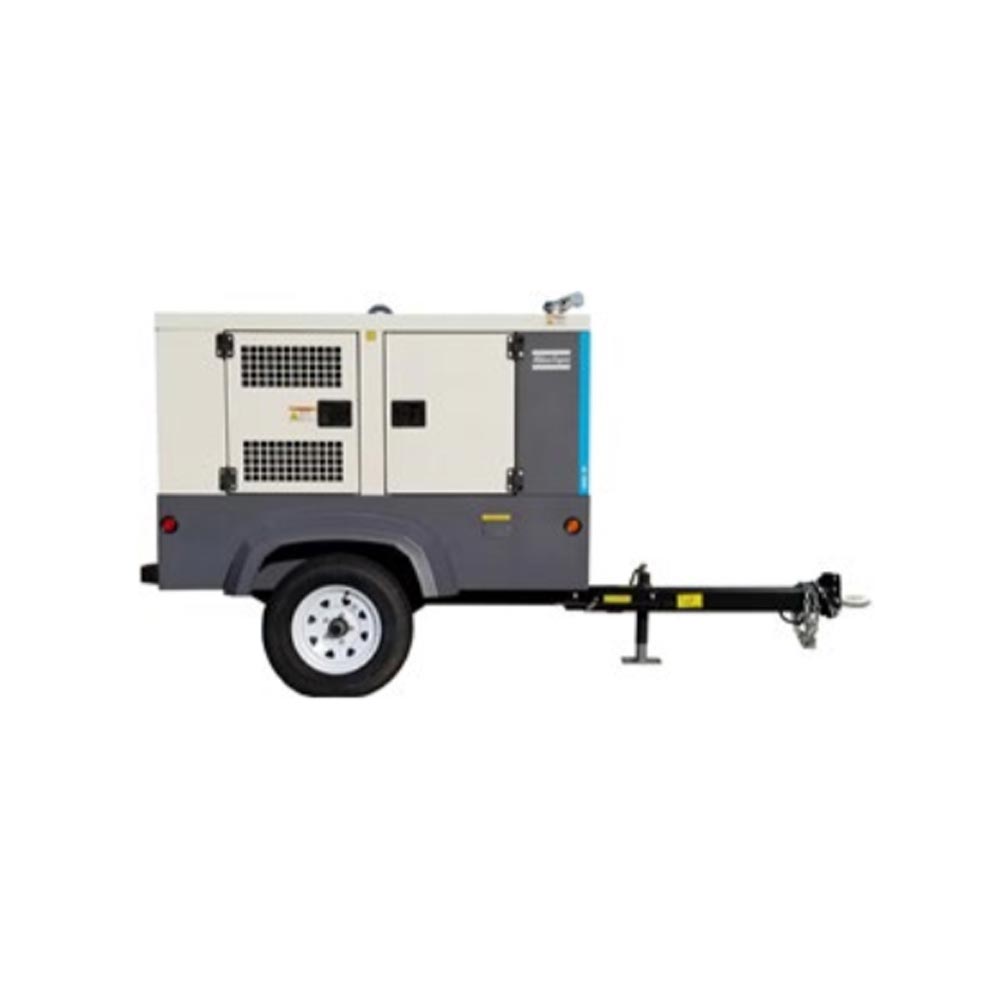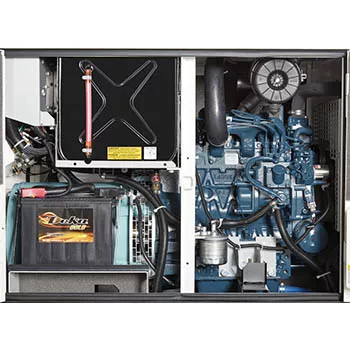
How to Choose the Right Generator for Refrigerated Shipping Containers
When your company’s future, your patients’ wellbeing, and the perishable goods in your inventory are all on the line then you can’t risk a power outage. A commercial generator for your 20ft or 40ft refrigerated shipping container will give you the protection and peace of mind you need. But how do you know which one to pick? We’ll discuss the important factors you need to consider whether you rent or buy a generator for your reefer containers.
What is a refrigerated shipping container?
Refrigerated shipping containers are the ideal solution for keeping your cargo at a consistent temperature and balanced humidity levels. With a refrigeration unit that circulates cold air through the floor, these containers provide the perfect environment to keep your goods in peak condition. But what happens when there's a power outage or you need to move your container off-the-grid? That's where generators come in - the right generator will ensure your cargo stays cool and safe. Don't take any chances - make sure you choose the right generator for your refrigerated shipping container and protect your goods from potential damage.
Does it really matter?
Choosing the wrong generator will be expensive. If you choose a generator that is too small, it won’t give you enough juice to power your 20ft or 40ft refrigerated shipping container and the goods will spoil. If the generator is too big, it will consume fuel and will be expensive to operate.
Here are a few more examples why it’s important to choose the right generator:
• Safety of perishable goods: When transporting food, medicine, and chemicals, it’s important that the correct temperature is consistent to prevent spoilage and contamination.
• Avoid financial losses: Spoilage of perishable goods can lead to significant financial losses for your business. You can lose lucrative partnerships and customers.
• Regulation compliance: Many countries have regulations in place to ensure the safety of perishable goods. These regulations often specify the temps needed. Choosing the right generator can help your business to comply with these regulations.
What are the factors to consider when choosing a generator?
Power requirements
The amount of power needed for a refrigerated shipping container depends on the size of the container, what's being shipped, and the ambient temperature. To make sure the refrigeration unit works properly, you'll need to pick a generator that can provide enough power.
Fuel type
Get a generator that runs on fuel that’s easily accessible and not too expensive wherever you will be using it. Diesel, gasoline, and natural gas are good options.
Noise level
Generators can be really loud, so picking one with a low noise level is key. This is even more important if the generator is going to be used in your neighborhood.
Portability
If you need to move your refrigerated shipping container around, it’s best to go for a generator that comes with wheels.
Other features
Think about the extras you want when you pick a generator, like being able to check on it remotely or having it switch on automatically.Figure out which features are important to you before you make a decision.
How to calculate the power requirements for your refrigerated shipping container?
Since there are many factors that can affect the power requirement like size of the container, type of goods, the ambient temperatures, the desired temperature inside, loading patterns and efficiency of the refrigerated container, we’ll be giving a simplified formula. If you need to accurately calculate the power requirement for your needs, it is best to consult with a qualified professional. They can use specialized software and their expertise to give you the exact power requirement and settings you need.
Use the calculator below to figure out the amount of power you need before purchasing a generator.
For example: One of our 20ft Refrigerated Cold Storage Container's operating voltage is 460 Volts, Current 25 amperes and the power supply type needs AC three phase.
After you plug those numbers in you'll get 15.934 kW
Because some generators use kVa (kilo volt amperage), you still have to convert kW to Kva.
Use this simple formula:
kW ÷ PF (power factor)= kVa
Generators have a power factor of .8
15.934 kW x .8 = 12.74 kVa
So you would need a generator that is over the amount needed for your refrigerated shipping container. If you were to rent this 20ft reefer for example, you would need a 15 kVa generator.
But how much fuel does the generator need?
Generally, a diesel generator will consume approximately 0.25 gallons of fuel per hour per kilowatt of power output.
For a very broad average value for all container types, ambient conditions and cargo types, the value 3.6 kW/TEU can be used. A 20' container tends to be closer to 4 kW and a 40' container tends towards 7 kW.
So for a 20ft reefer, it would consume 1 gallon per hour.(4 kW x .25g = 1 gallon) and a 40ft reefer would consume 1.75 gallons per hour (7 kW x .25g=1.75).
There are two main types of generators for refrigerated shipping containers:
• Diesel generators: Diesel generators are the most common type of generator used for refrigerated shipping containers. They are reliable, durable, and can provide a lot of power. However, diesel generators can be noisy and expensive to operate.
• Gasoline generators: Gasoline generators are less expensive to purchase and operate than diesel generators. However, they are not as reliable or durable, and they cannot provide as much power.
How to choose a generator with a low noise level?
When choosing a generator with a low noise level, there are a few key factors to consider:
• Type of generator: Some types of generators are naturally quieter than others. For example, inverter generators are typically quieter than traditional generators.
• Size of the generator: Larger generators tend to be louder than smaller generators.
• Features: Some generators come with features that can help to reduce noise levels, such as mufflers and sound enclosures.
When calculating the power requirements for your refrigerated shipping container, it is important to use a conservative estimate. To be on the safe side, make sure to factor in a safety margin when selecting a generator. We've covered the basics and hopefully you have a general idea on how to choose the perfect generator for the job. If you are unsure of how to calculate the power requirements, it is always best to consult a qualified professional for assistance in finding the right generator.
* If you need to rent a generator and are located in Northern California, we reference 3rd party providers here.




